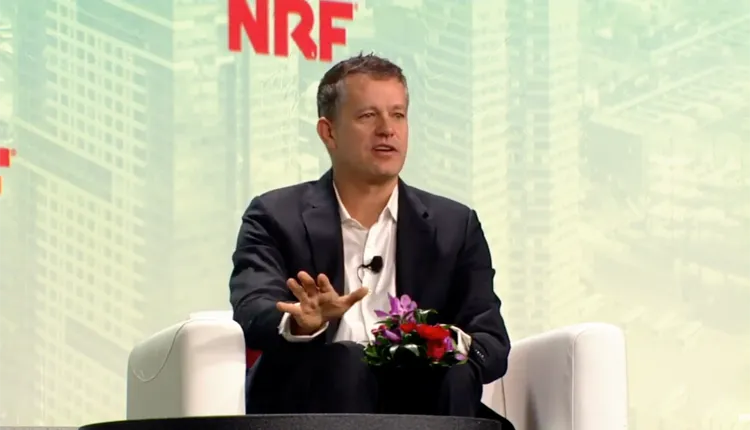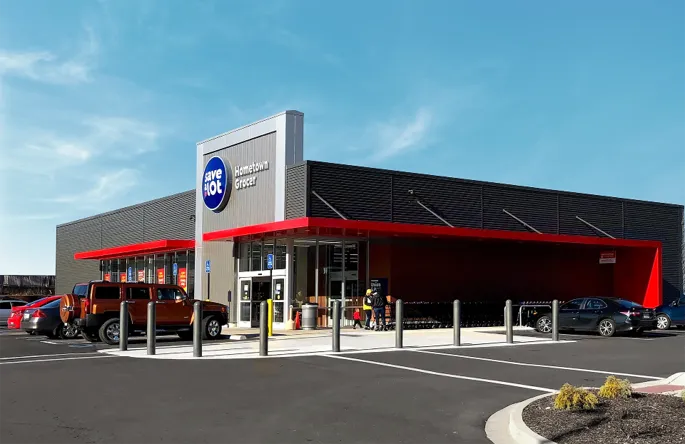NEW YORK — Walmart U.S. president and chief executive officer John Furner realized early in his career that the work retail employees do is important. “I started in retail working in a garden center at a Walmart store,” Furner recalled at the recent National Retail Federation conference here. “And I quickly realized that this work … serving people and making their lives better, it made a real difference.
“And I think our role, leading big organizations, is to make sure that our teams have the resources, the clarity, and really the whole system and process around them, to make the environment work. So that they can be successful.”
Furner shared the stage with MIT Sloan School of Management professor and author Zeynep Ton at the conference, NRF 2020 Vision: Retail’s Big Show.
The session was “Why Retail Jobs Can Be Good Jobs,” and Furner noted that he had been inspired by Ton’s book, The Good Jobs Strategy: How the Smartest Companies Invest in Employees to Lower Costs and Boost Profits, while he was serving in his previous role as president and chief executive officer of Sam’s Club.
Ton explained that during her research for the book, she looked at retailers that were providing great value to their customers and investors and good jobs to their employees, with incredibly low turnover.
“But when I looked into what they were doing, it wasn’t just that they were paying their employees more or having more people on the floor and hoping for the best,” Ton said. “They had a fundamentally different operating system that leveraged a highly capable and motivated workforce. So they made choices that included productivity and the contributions of their employees. Versus what I had observed in the retailing world before, where you design a marketing system assuming high turnover, assuming low skill, assuming low motivation. Almost using people like interchangeable parts.”
Part of the change is due to the fact that the perceived role of corporations is changing, Furner argued.
“When I went to school the role of a corporation was to create shareholder value — that was the definition. That was the end of it. That’s how you got an A on the test, was to repeat that,” he noted.
Now, as the Business Roundtable acknowledged in a statement last year, the purpose of a corporation is seen as serving the needs of all stakeholders, including communities, customers and employees.
Furner added that, as part of the transformation of Sam’s Club that the company was enacting, leadership realized what consumers were looking for from the associates working in the store.
“What we had learned from customers is that they wanted more from our associates,” Furner explained. “At first we thought that meant we needed more training. But what we really needed was people who were experienced, who had been around the meat department for a couple of years, or people who had run a department for two or three years. That’s the expertise that people were looking for.”
To get those kinds of people, Sam’s Club raised the pay of employees, with team leaders receiving increases of up to $8 per hour, and technology was employed to free more associates to interact with customers.
The moves paid off, and Sam’s Club experience higher retention rates for associates, as well as higher customer satisfaction. Financial metrics improved as well. Furner cautioned that that doesn’t mean the story is over.
“One thing you never want to do in retail is say, ‘We have the answer, we’ve figured it out.’ Because our customers are always changing, and regardless of how well you think you’re doing, a week from now, a month from now, a year from now, there will be much more to do.
“But at the end of the day I think there’s no better investment than in the people that you have on your team who are serving the people that are paying you to be in this.”
Ton closed the session with praise for Furner’s moves, and noted that the session was originally supposed to be called “Why Retail Jobs Are Good Jobs,” but she had asked that it be changed to “… Can Be Good Jobs” instead.
“What we learned today is that a change is possible, and it’s possible even for a low-cost retailer. Offering good jobs is not only the right thing to do, it’s the smart thing to do from a competitive and financial point of view.”






